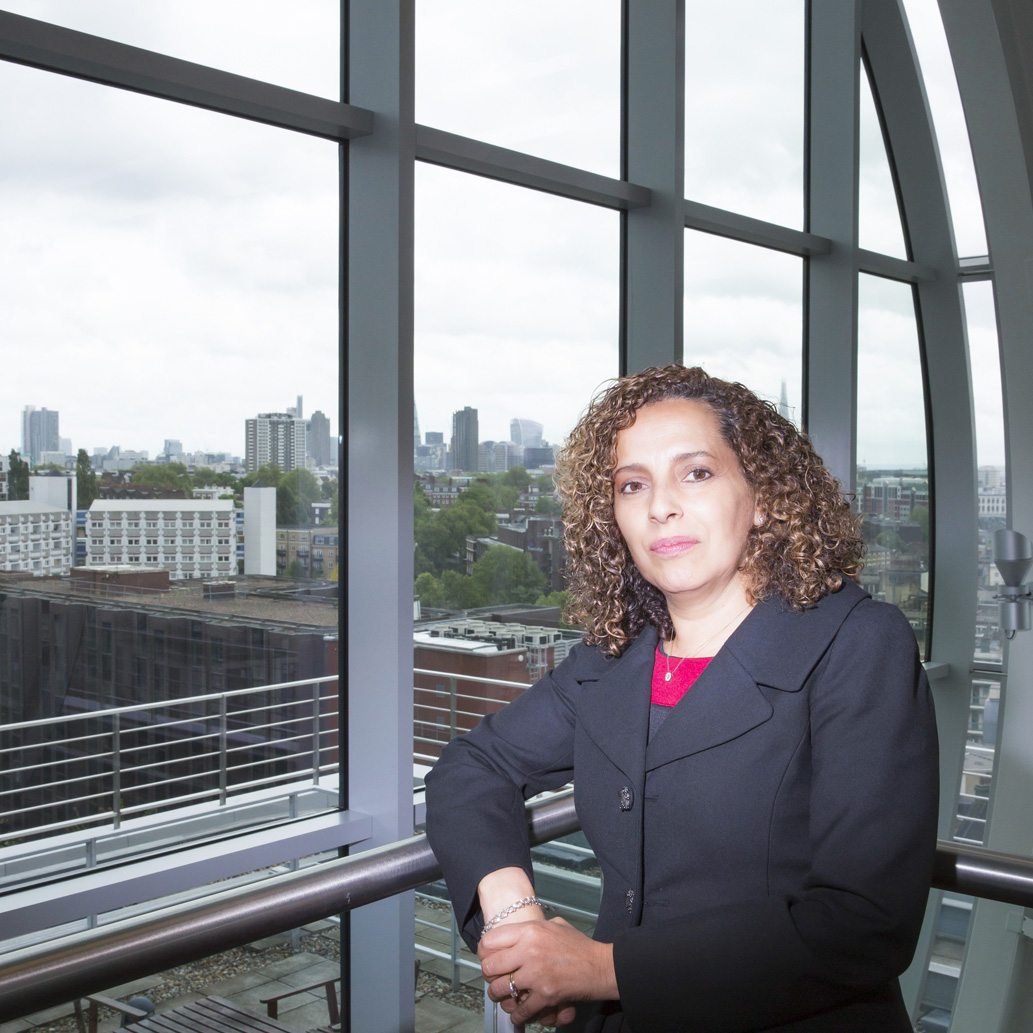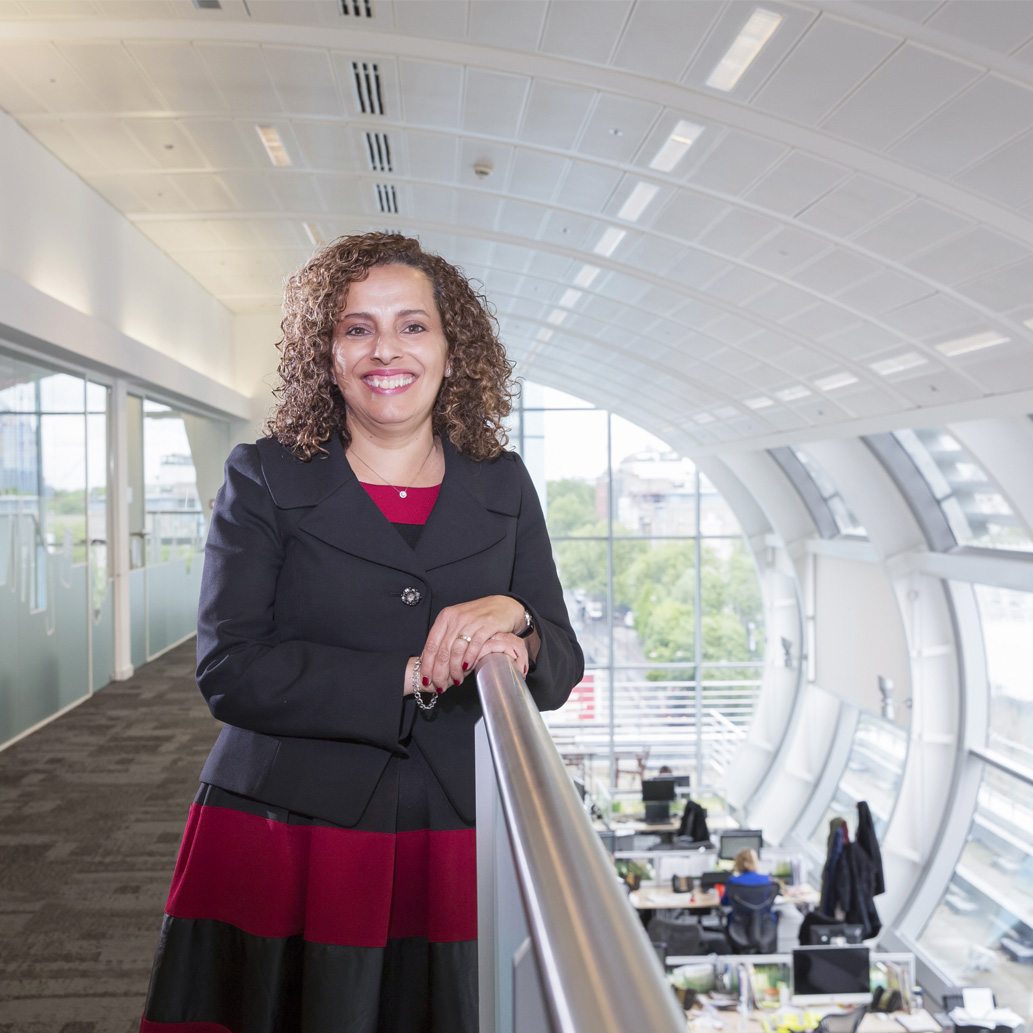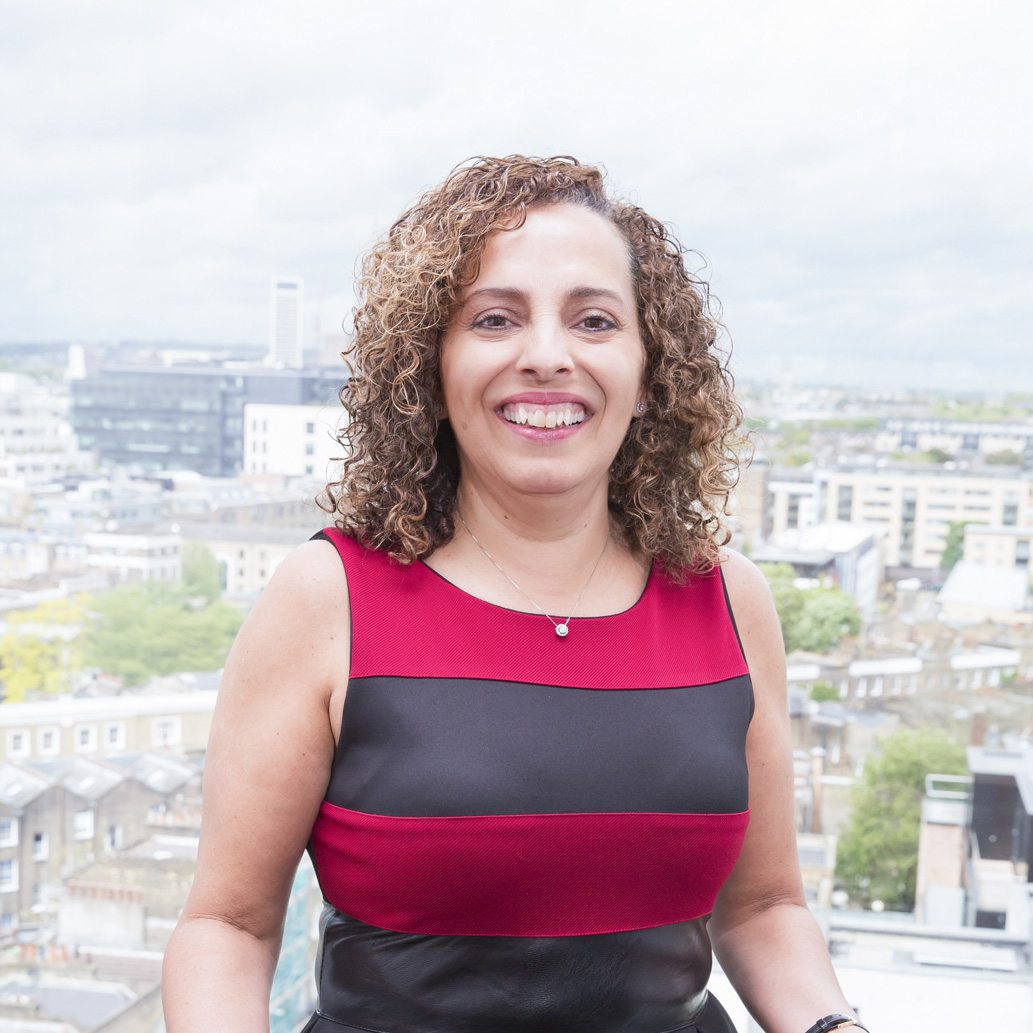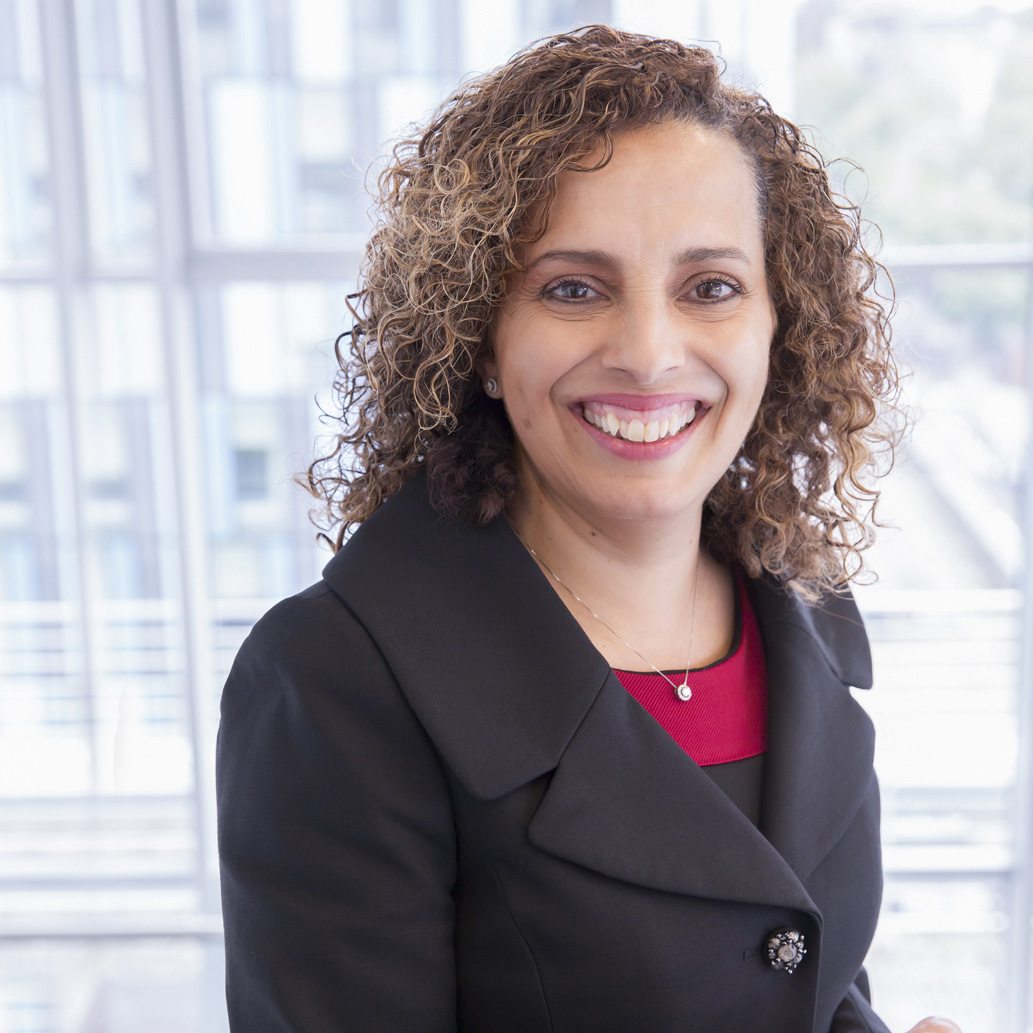Marguerite, tell us about your early life and what it was about HR that was the career decider.
My career goes back 30 years and my first job was working for a Northeast bank in Boston with 13,000 employees. I was the company liaison with the Copley Square High School, where I recruited and coached students on internships. I facilitated workshops on how to write their résumés and I taught them interviewing techniques for employment opportunities at the bank, too. It was a great way to get into personnel at the time. I was then promoted to Temporary Workforce Coordinator, where I ran the bank’s temporary services, and then promoted once again to the Employee Benefits Counsellor, providing employees and retirees with their benefits needs.
I was ticking off a few boxes in the HR field and realised that I was really enjoying it. However, I also realised that clearly, if I wanted to progress my career, I would have to gain more schooling in the subject. So while working full-time during the day, I studied at night and weekends to attain my Bachelor’s Degree in Business at Lesley College-Cambridge. This education concurrently opened me up to a series of HR courses. Having attained several qualifications, my husband and I had a big life change, as he was seconded to a job in Chicago, and after we moved there, I progressed into various director level positions where I created or redesigned the HR function. I came to the realisation that I’d found my true vocation. Then, I joined a great organisation called Equity Office Properties, which owned and managed office buildings nationally. This was the first time in HR where I truly believed that I was “adding value” to the organisation from a HR capacity. With some real-life experience under my belt, I continued my education and studied at night and weekends for my Master’s Degree in Organisation Development, at Loyola University-Chicago, as well as developing my qualifications in coaching, leadership development, and more. At this time, I could really see that HR was heading towards a more strategic place, and being a more integral part of business, in relation to organisational effectiveness and change management. I really liked the look of that. For me, HR was starting to be recognised as a proper profession that impacts on the bottom line, and I was quite energised about the future.
Before long, my career moved me to the Vice President, Human Resources with Veolia in 2006 within Technical Solutions, where I was getting more involved with a variety of strategic HR responsibilities. Truthfully, I did not know much about Veolia and certainly friends and associates were similarly unfamiliar with the company, but it really opened my eyes to how broad a remit HR was becoming. I am also passionate about working for a company with a purpose as worthy and essential as helping to improve the environment. Nine years into my tenure, my husband and I relocated to London, to take on the HR Director post for the UK and its 14,000 employees. In my short time here, we have had three mergers and I have really revelled in the opportunity of building the unified Veolia HR team for Waste, Water and Energy in the UK and Ireland. What a great experience and challenge this new role has been for me both professionally and personally!

Over the past couple of decades, HR has absorbed extra responsibilities such as CSR and environmental issues like a sponge, and still it is challenged to prove itself and add value. Do you think HR has actually taken on too much?
No I don’t at all, in fact I think its position on the environment and CSR is perfectly attuned. What really switched me on to working for Veolia UK, was the absolute direct line of communication between HR and my Chief Executive, Estelle Brachlianoff, which demonstrated to me that, sure, the environmental credentials were taken as read in this organisation, by nature of what it did, but also this demonstrated a direct correlation between leadership and the people part of the business. Going back to what you said about HR having to justify itself, I think there’s some truth in that. But I choose to see that as a bonus, because it forces you to challenge your part in the business, which is a very pro-active way of going about things.

What was on the HR agenda for the business, and how did you go about meeting those needs and expectations?
It was clear when I arrived here in the UK, that I needed to re-energise the HR team, as well as be more proactive and nail the basics for the business. In this last year or so, we have also created a HR strategy, called ‘HR Resourcing the World’, aligned to the business needs. Additionally, I have been gaining an understanding about all of the Veolia businesses and collaborating on the cultural transformation of bringing together these three companies. As I mentioned earlier, the HR strategy is being implemented, and of course, attracting, developing and retaining talent is fundamental to the business, as well as cascading and living the values/behaviours of the organisation, without which, in my book, nothing can be achieved.

Businesses have become so much more complex, is HR actually part of the problem, or is it merely reacting to what's going on around it?
I certainly think that years ago, before HR was offered a place at the table, it was reactive, possibly over-reactive. If you were not sitting at the table, it’s obvious that you missed out on what was happening. Before I came to Veolia, my predecessor was not on the board in the UK, which was unfortunate. I stipulated that in order for me to be successful, it would be imperative to be a member of the board and report to the Chief Executive. One of the main focus areas has been improving our HR systems and processes and getting to grips with the data available, and now I have more information from a HR reporting standpoint, and it is a new start for HR. A strategy has been put in place and a team built to align and partner with the business. We are heading in the right direction, now we have to focus and deliver.
The organisation has recently amalgamated under your HR stewardship. Give us an idea of what the business looks like now.
Waste management was at the vanguard of the UK business, primarily due to the scale of the landfill problem, with a much greater emphasis on ‘truck and dump’ than treatment and recycling. Veolia has been a key player in recycling in the UK for over 25 years and has been a major investor in treatment infrastructure. When I joined Veolia in the USA in 2006, waste, water and energy were running independently. Then the recession struck and part of the drive to gain efficiency and cut costs involved the selling of the US waste management business. When I arrived in the UK, the retail water business providing water directly to homes had already been sold. At that point, we had just reorganised so that the commercial water business could continue to be successful in the UK. Three weeks after I arrived, we had a meeting in Paris where it was announced that the water and waste businesses would be brought together. Right from the start, it was clear we had a group coming in with a different culture to our own, and we had to really think about how best to merge for both parties. A week later, we were travelling around to plants and clients illustrating the new strategy for waste and water and what it meant for business, and this really helped me understand what it meant to be in the UK, how this was going to work, and the feedback from people was very valuable, as we really needed to understand how people were culturally fitting into the “One Veolia”. So we conducted engagement workshops, we evaluated the feedback, determined the organisational blockers or enablers, and this allowed us to celebrate what was working well and to take actions on what wasn’t working well. Then, in July 2014 we included energy services as part of the business which had operated differently. It was once again about bringing together these three organisations within the UK as well as the Ireland businesses, and wanting to grow as a business and how we would do that with the talent we had here, too. The roadshows really evolved us as an organisation and it is now a part of what we do. The regional roadshows that followed were based on what we do and who we are. It’s great to see the transformation that we have made with this latest management conference. Our people have begun to embrace the transformation and they are really motivated to be part of it.
You were bringing in new operational guidelines and business values at a time where there was a lot going on. That's a tough call, particularly when people are trying to get to grips with change.
Indeed, one thing we have to work on is the cascading of information. It’s about getting the messages going down further, and getting to front-line employees, ensuring the message is simple, consistent and comprehensive. This is fundamental, particularly when it comes to health and safety, so knowing your audience is important. We really have simplified the message, because clearly, we have to ensure we have safe environments for our people to work in. A lot of it is down to good practice, and your effectiveness is down to how much of a reach you have within the business. Making sure that there is that connection, whether that be about correct operational procedure or health and safety, whether from feedback or visits. What we really want to look for is leading indicators, the workplace indicators that allow us to see whether there are anomalies, and also making sure that people are truly engaged in good standards across the board.
Recycling has been around for decades, but it's only just recently that it has really hit home that it's a thing that most people do.
Yes and that’s all down to the fact that everyone has got into the routine of separating the recycling, and I think it’s clear how much packaging we use and how it impacts our environment, which is terrific news and a great help when it comes to taking this sense into the workplace. Businesses great and small, are now so much more aware and have the drive to sustainably operate in an environmentally conscious way. Of course, the next generation is really in tune, so we’re pushing on an open door. This is evident in our recruitment, as the younger generation is genuinely interested in the environment and business impact. In the UK, Europe and America, in general things are continuously improving, and there’s been a huge change in attitudes, which will be essential, because increasingly still, people are being drawn to the cities, cities are expanding, and there will always be a massive strain on waste, energy and water. The task ahead is considerable and as we have been drawing the strands of the three businesses together, you begin to see it’s kind of connected. But much more needs to be done to work on the synergies, and the big gains will come through education. For example, we now have the Veolia University, which ensures our managers are knowledgeable in water, energy and waste, even if their expertise lies only in one of the Veolia businesses.
What would you say are the main objectives for the business now?
At our recent management conference, top of the agenda was our company’s objectives, values and core commitments. This was a very wide remit and seen very much as the glue between the three elements of the organisation, as we close the gaps, work on the synergies and decide if the many and varied differences are for the positive or negative. The big issue is that we are a multi-site organisation, and all the sites must be aligned. It’s back to what I was saying earlier, about the cascading of common messages, making that connection, and a smooth flow of two-way communication is beginning to pay off. Even so, for HR at this point, it’s hugely absorbing, and taking up a lot of time, energy and commitment. One of the keys has been related to transformational leadership. When I arrived I was informed that the frontline supervisors had historically received the least amount of leadership development opportunities. Therefore, The Inspirational Leader was introduced and the response level has been positive. We’re really exploring different ways to use technology, both in L&D, and also the day-to-day communications with our employees or new recruits. For instance, we just recently introduced live chats on twitter for our new graduate scheme.
What the younger generations coming into the business want from a career is quite different to aspirations of the past, how is the business accommodating this?
It is certainly the case that the younger generation want flexibility, and meeting that is one of the longer term goals we are working on, in terms of career development. For all employers, the traditional career ladder is suddenly looking old fashioned, and I think for every business, it’s going to be more about accommodating a much greater variety of needs and aspirations, which naturally comes with a widely diverse workforce. Some might believe that this creates more confusion, but really, the diversity of it provides businesses with a great deal of flexibility, strength, depth and possibilities, which modern systems should easily be able to manage. It is a mind-set and once a fluid and diverse workforce begins to show its credentials, I think it will be a completely natural way of working, with people looking to move in all directions, not just looking up the ladder. I really think this will help with retention too. It’s about creating a culture that’s conducive to collaboration. For example, we’re finding that our more mature employees are so keen to share their knowledge and they find mentoring really rewarding. I find this is fascinating and rewarding from a HR standpoint and I intend to continue working on this.
As we have covered in the interview, recycling and waste management is better now than it has ever been, but there are parts of the world that are still being devastated, and still, even here in the UK, there is still room for improvement.
Our tagline is Resourcing the World. The reality is, we are reliant on natural resources, but it is all about managing a sustainable balance. As we have spoken about, I think the fact that most people are committed to recycling at home is a step forward but the potential from working with business is even greater. We are working with businesses which want to really improve on the packaging it uses and looking at some innovative ways to improve that. So for us, it’s looking at the front-end of the journey, in this case, less packaging, more biodegradable or recycling materials, and that of course will impact positively on the back end, the waste management. If we can educate and inspire businesses to think less laterally about how they operate and manage their waste, the improvements will be obvious, immediate and infinitely impactful.
What's the next objective for Veolia?
Gaining a greater awareness and understanding of what we do and what we stand for and demonstrating to customers and investors that this is a multifaceted organisation with some amazing synergies. People are starting to wonder what this company is about, and we’re actively working on getting people involved in their neighbourhood, to build an understanding of their local environment, and how they can play their part in improving it. I’m sponsor of a project about leveraging people’s skills, promoting innovation and fundamentally, it’s about keeping the messages compelling and consistent.
What about your own personal goals for the organisation?
As well as the raft of challenges that we’ve discussed today, I’m really passionate about getting more female talent into this sector. I have been spending time talking to and informing people about our industry and the career opportunities available to them, and I’m currently reviewing our UK population, in relation to our employee population, to determine our gaps and opportunities. I also want to continue working on how we can continue to support and benefit from our more seasoned employees. Like all organisations, there is a lot of hugely valuable knowledge that we cannot afford to lose, and it’s plainly the fact that this is a different world to that of previous generations, and employers absolutely need to reflect that. We talk about the employee life cycle at Veolia, because we want to improve on phases in that lifecycle. The data helps us understand how we attract, develop and retain our people, and that’s a very valuable tool in this time of changes in the workplace.
Looking back over your career, how would you summarise the routes you took?
You often read about people that had no doubt what they wanted to do in their career. I was definitely not one of them. I really made my way through learning, and the more I learnt, the more opportunities presented themselves, so I’m a huge advocate that you should never stop learning. Every job I have undertaken has been enriching, often challenging, but it’s up to everyone to equip themselves, and there should be no obstacle to learning from peers and managers, by cultivating a network where peers and managers are happy to provide support and guidance. And finally, I think being open and being brave about making choices can be daunting, but the rewards are often so much greater when you push yourself out of the comfort zone and into the unknown.












